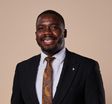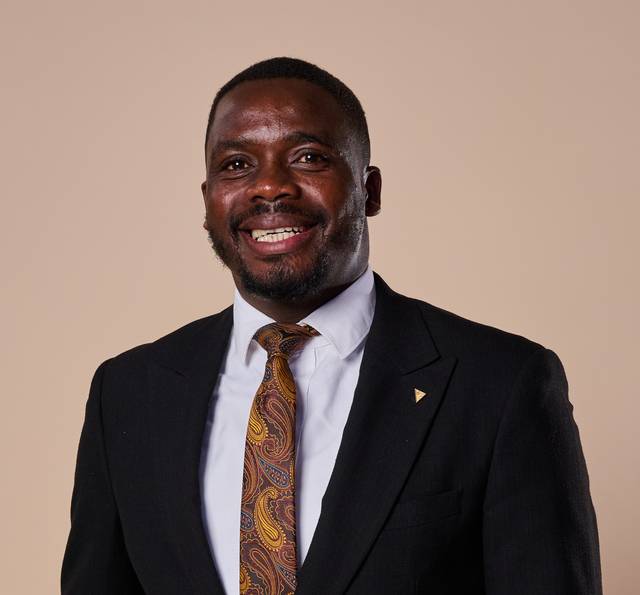
Scholar Stories
The Mandela Rhodes Scholarship: A personal journey of growth and leadership development
The Mandela Rhodes Foundation’s commitment to nurturing young African leaders couldn’t be more evident in my cohort. When I arrived for our first Leadership Development workshop, I met ambitious and industrious young people who shared common goals like me. I was amazed at how the selection process was able to identify diverse people, but with similar hearts. People who embody a deep sense of purpose, integrity, and vision. As one of the fortunate individuals to have participated in this prestigious programme, I have experienced first-hand the impact of the Scholarship, particularly the components of leadership development and reconciliation.
However, my journey with the Mandela Rhodes Foundation (MRF) was far from the smooth path one might assume. On my first attempt, I made it all the way to interview stage but failed to make it through to the final selection. It hit me hard. I was devastated, and it felt like my world had shattered. It seemed like the end of the road. I was overcome with disappointment, unsure of what more I could have done, and for a moment, I questioned my worth and ability to succeed. But the beauty of the MRF lies in its belief in second chances. Regardless of past attempts, the door is never closed to anyone who meets their criteria.
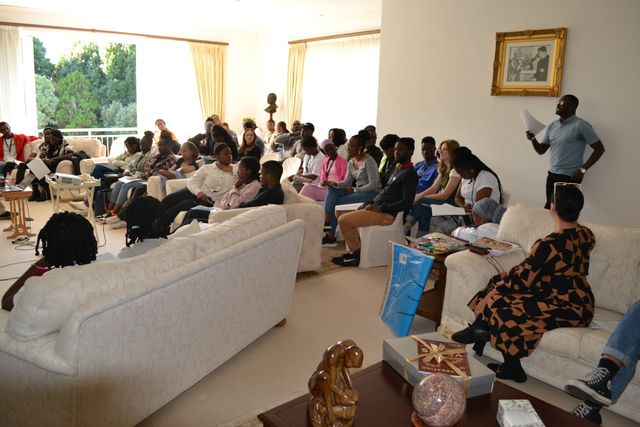
1st year mid-year workshop on reconciliation
This understanding slowly gave me strength. With time, I picked myself up, and despite the fear of failing again, I decided to give it another go. Determined, I went through the entire application process again, pushing through the doubts that lingered from my previous experience. This time, however, life was even more challenging. I was dealing with many personal issues that weighed heavily on me, and by the time of the interview, I felt overwhelmed and utterly unworthy. To make matters worse, I missed my flight on the interview day. Fear crept in, afraid that I would face the same rejection and that history would repeat itself. The thought of it was almost unbearable. But somehow, in that turmoil, I talked myself through the fear. I persevered, and after a difficult journey to Cape Town, I finally appeared before the interview panel.
As I left the interview and returned home, I felt vulnerable and consumed with worry. Had I done enough? Or would this be another chapter of disappointment? The wait was agonising, but a few days later, I received a phone call from the MRF team that changed my life forever: This time I had made it!!! That moment marked the beginning of a journey that would shape me in ways I could never have imagined. For some, success with the MRF comes with their first try, while for others, it requires resilience, perseverance, and multiple attempts. My experience taught me that the MRF is not a place where your past failures define you. Instead, it offers you a chance to rise, learn, and try once more. This is the essence of what the MRF stands for: a belief in potential, growth, and the power of perseverance. My journey to becoming a Mandela Rhodes Scholar may have been filled with challenges, but these challenges prepared me for the transformative path ahead.
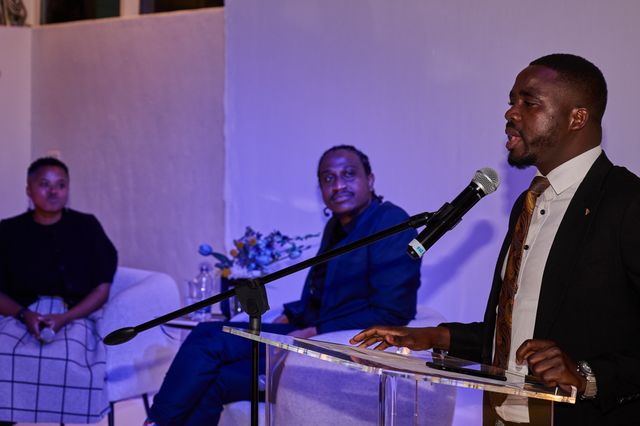
Graduation night speech
MRF and leadership
MRF taught me about leading with authenticity, compassion, and stewardship. Rather than focus on teaching us about leadership theories and governance styles, the programme invited me to reflect on what it means to be a leader in my African context. The uniqueness I found with the MRF is that it set me on a personal journey of self-discovery. It gave me the ability to find inner power and to fully understand myself as a leader. I realised that the greatest leaders are not the ones with power and might, but the ones who truly understand their strengths and weaknesses and have the courage to triumph over their daily struggles to serve the community they lead. This approach challenged me to rethink conventional notions of leadership that focus on authority and wielding power. Instead, the training helped me to form a perspective that leadership is about embracing responsibility, where the needs of society and the greater good take precedence over personal ambition.
MRF and reconciliation
Coming from a part of Uganda, people have suffered from war for over 20 years. During this period, our relatives, friends and families were butchered, children were abducted, and girls and women raped. The untold brokenness of a deeply traumatised community was buried deep inside of us. The atrocities created horrible memories and pain in many lives, and I was no exception to the hurt that everyone felt. That our childhood joy was taken away and we had to experience pain from day one of life made me constantly sad. We had to learn to live through this conflict that made us hopeless and miserable with no sign of the end.
I joined the programme with repressed emotions and swore I would never revisit that area of my life because it was too painful to think about, let alone talk about. But the reconciliation process designed by the MRF allowed me to embrace my pain and my brokenness; it allowed me to cry, to be angry, to be sad, and yet it empowered me to take steps towards the journey of healing at the same time. Through my story and those of other scholars, I saw the power of letting pain come out. For the first time, I was proud to be broken. The atmosphere allowed me to feel safe and accepted. I began to see life beyond my brokenness, hurt, pain and the tragic past.
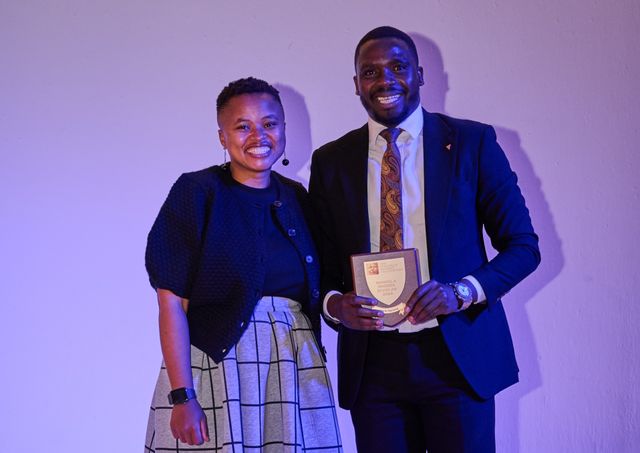
MRF CEO, Judy Sikuza and Frank at graduation night
Besides dealing with the issue of the war, the MRF training encouraged me to confront uncomfortable truths about myself and the toxicity I was forced to face as a child. The process encouraged me to dive into the dark corners of my past, to address painful experiences and insecurities that piled in my life to the extent that they defined me and my behaviour. At this point, I realised that reconciliation was not just about forgiving the person next door or the criminals who committed atrocities against my people, but that it is also about healing wounds that exist within me. It challenged me to look at my own biases, privileges, and the historical legacies of oppression, and I came to conclude that despite all the external oppressions that I dealt with, I had also become my own oppressor by being in the prison of my past.
In the end, I was more equipped with the tools to be a more effective leader. Whether in my work with communities or in facilitating discussions around contentious issues, I have learned that reconciliation requires patience, love and perseverance. It demands creating and holding space for others to heal and foster dialogue and mutual understanding, even in difficult conversations. To recognise the humanity in others in the face of disagreement. This lesson became a cornerstone of my approach to life, leadership and conflict resolution.
Through the MRF focus on leadership, reconciliation, education, and entrepreneurship, I have acquired skills, knowledge, and values needed to make a lasting impact in my community and the wider world.
I am aware, as a leader, that my journey is just beginning and that there is a long way to go in finding myself, with much uncertainty and so much to figure out. But I am prepared for what lies ahead and feel shaped to not be afraid to fall, and rise again and again.




